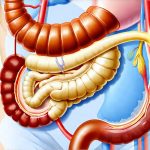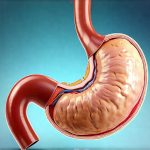Cold environments significantly impact physiological processes, often leading to discomfort and reduced functionality. One frequently overlooked consequence is the slowing down of gastric emptying – essentially, how quickly food moves through your digestive system. This isn’t merely a matter of feeling sluggish after exposure to cold; it’s a complex interplay between nerve responses, blood flow redistribution, and metabolic adjustments designed to conserve energy. The effect can range from mild bloating and fullness to more pronounced upper abdominal discomfort, particularly when combined with certain dietary habits or pre-existing conditions. Understanding this phenomenon is crucial for individuals who frequently operate in colder climates or participate in outdoor activities during winter months.
The body’s response to cold prioritizes core temperature maintenance. To achieve this, blood flow is redirected away from the periphery – hands, feet, skin – and towards vital organs. This shift inevitably impacts digestive processes. Reduced blood flow to the gastrointestinal tract means less oxygen and nutrients are available for optimal functioning, directly slowing down muscular contractions needed for food propulsion. Furthermore, cold exposure activates the sympathetic nervous system (the “fight or flight” response), which suppresses digestion in favor of energy conservation and alertness. This isn’t necessarily a negative adaptation – it’s the body doing what it needs to survive – but it can manifest as uncomfortable digestive symptoms if not understood and managed. Understanding how to plan balanced meals can also help minimize discomfort.
The Physiological Mechanisms Behind Slowed Gastric Emptying
The slowing of stomach function in cold environments is not a single event, but rather a cascade of interconnected physiological changes. Initially, vasoconstriction—the narrowing of blood vessels—occurs in the skin and extremities to minimize heat loss. This constriction reduces overall blood volume available for digestive processes. Simultaneously, hormonal shifts play a role; cortisol levels tend to rise in response to cold stress, further suppressing digestive activity. The vagus nerve, which is crucial for regulating digestion, experiences reduced activity as the sympathetic nervous system takes precedence. This impacts peristalsis – the wave-like muscle contractions that move food through the digestive tract.
The impact isn’t limited to just slowing down movement. Cold temperatures can also increase gastric sensitivity, meaning the stomach becomes more reactive to distension (stretching). This heightened sensitivity, combined with slower emptying rates, amplifies feelings of fullness and bloating. Moreover, cold exposure can alter gut motility patterns, leading to irregular contractions and potentially exacerbating digestive discomfort. Individuals who are already prone to conditions like irritable bowel syndrome (IBS) or functional dyspepsia may find these symptoms significantly worsened by even mild cold exposure. Learning meal composition strategies can also prove beneficial in managing such conditions.
Finally, it’s important to remember that individual responses vary. Factors such as body composition, hydration levels, clothing choices, and acclimatization all influence how the body reacts to cold and, consequently, how much digestive function is affected. Someone accustomed to cold weather will generally experience less pronounced effects than someone who is unaccustomed or poorly prepared.
Dietary Considerations & Upper Abdominal Discomfort
The type of food consumed plays a significant role in exacerbating or mitigating the effects of slowed gastric emptying in cold environments. High-fat foods, for example, take longer to digest and empty from the stomach even under normal circumstances; when combined with cold-induced sluggishness, they can significantly worsen bloating and discomfort. Similarly, large meals overwhelm the digestive system, making it harder to process food efficiently. Carbonated beverages can also contribute to gas production and exacerbate fullness.
Conversely, easily digestible foods – such as cooked vegetables, lean proteins, and whole grains – are less likely to cause issues. Staying well-hydrated is crucial; water helps facilitate digestion and prevent constipation, which can compound the problem. Smaller, more frequent meals are preferable to large infrequent ones, reducing the burden on the digestive system. Focusing on warm foods and beverages can also be helpful as they require less energy from the body for temperature regulation during digestion. Considering protein sources that are easier to digest can also make a difference.
A common manifestation of this slowed gastric emptying is upper abdominal discomfort, often described as a feeling of fullness, bloating, or even mild nausea. This discomfort isn’t necessarily due to an underlying medical condition but rather a physiological response to the cold and dietary choices. However, it’s crucial to differentiate between typical cold-induced discomfort and symptoms indicative of a more serious problem. Persistent or severe abdominal pain should always be evaluated by a healthcare professional.
Managing Digestive Discomfort in Cold Weather
Here are some strategies for minimizing digestive discomfort when exposed to cold:
- Layered Clothing: Maintaining core body temperature is paramount. Layering allows you to adjust clothing based on activity level and environmental conditions, preventing excessive heat loss.
- Hydration: Drink plenty of water throughout the day, even if you don’t feel thirsty. Dehydration can worsen digestive issues. Warm beverages are particularly comforting in cold weather.
- Dietary Adjustments: Opt for smaller, more frequent meals composed of easily digestible foods. Limit high-fat and processed foods.
- Moderate Exercise: Gentle physical activity can stimulate digestion, but avoid strenuous exercise immediately after eating.
- Gradual Acclimatization: If you’re traveling to a colder climate or starting an outdoor winter activity, allow your body time to adjust gradually.
The Role of Individual Sensitivity & Pre-Existing Conditions
As previously mentioned, individual responses to cold vary significantly. Some individuals are naturally more sensitive to temperature changes and experience greater digestive disruption than others. Genetic factors, metabolic rate, and overall health status all contribute to these differences. Individuals with pre-existing gastrointestinal conditions – such as IBS, Crohn’s disease, or GERD – may be particularly vulnerable to the effects of cold on digestion.
For example, individuals with IBS often experience heightened visceral sensitivity, making them more prone to bloating and discomfort when digestive function is disrupted. Cold exposure can exacerbate these symptoms, leading to flare-ups. Similarly, those with GERD might find that slowed gastric emptying increases the risk of acid reflux as food remains in the stomach for longer periods. Therefore, individuals with pre-existing conditions should be particularly mindful of dietary adjustments and preventative measures when exposed to cold. Practicing mindful eating can also help manage these sensitivities.
Recognizing When To Seek Medical Attention
While mild upper abdominal discomfort is often a normal physiological response to cold exposure, it’s essential to differentiate between typical symptoms and those that warrant medical attention. If the discomfort is severe, persistent, or accompanied by other concerning symptoms – such as fever, vomiting, diarrhea, blood in the stool, or significant weight loss – it’s crucial to consult a healthcare professional. These could indicate an underlying medical condition unrelated to cold exposure. Similarly, if dietary adjustments and preventative measures fail to alleviate the discomfort, seeking medical advice is recommended to rule out any potential complications. Remember that this information should not be considered a substitute for professional medical evaluation or treatment. Also consider how meal timing can affect your comfort levels. It’s important to avoid common dietary mistakes that could worsen digestive issues. And finally, don’t forget the importance of posture – improving posture during and after meals can significantly reduce discomfort.


















